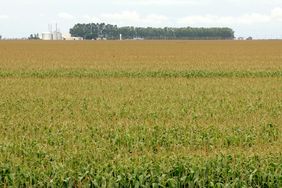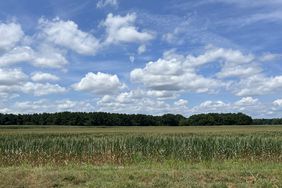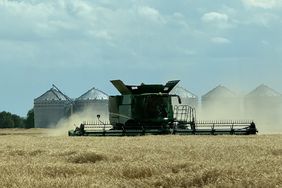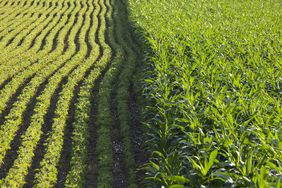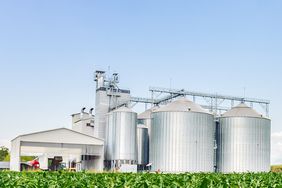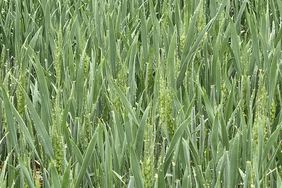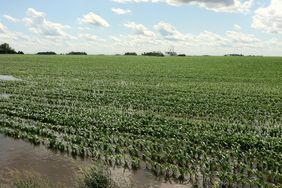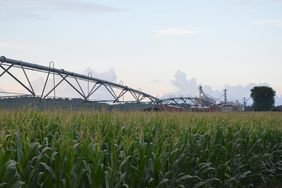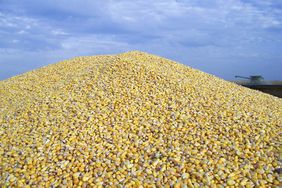:max_bytes(150000):strip_icc()/RandallHarvest_0-3cf554a767564778bef20d7e99a08ea7.jpg)
Hotter, drier weather driven by a changing climate is threatening the global supply of wheat, which makes up 20% of all calories and protein consumed around the world.
The Foundation for Food and Agriculture Research (FFAR) has awarded a $5 million grant to the International Maize and Wheat Improvement Center (CIMMYT) to develop climate-resilient wheat.
CIMMYT, a global research leader on maize and wheat, is using the latest in technology to produce heat-tolerant, drought-resistant, and climate-resilient wheat cultivars.
CIMMYT researchers and collaborators are applying cutting-edge approaches in genomics, remote sensing, and big data analysis to develop new breeding technologies. A key intervention will explore the vast and underutilized reserve of wheat genetic resources to fortify the crop against current and future climate-related stresses.
"This project will help bridge a longstanding gap between state-of-the-art technological findings and crop improvement to deliver climate-resilient wheat to farmers as quickly as possible," says Matthew Reynolds, head of wheat physiology at CIMMYT and principal investigator of the project.
The FFAR-funded project will help wheat farmers via the International Wheat Improvement Network, which supplies new wheat lines to public and private breeding programs worldwide. It has boosted productivity and livelihoods for wheat farmers for over half a century, especially in the Global South.
"Heat, drought, and wheat are three of the most important words for billions of people," says Kevin Pixley, CIMMYT interim deputy director for research. "This partnership between CIMMYT and FFAR will help ensure that the best agricultural science is applied to sustainably raise production of one of the world's most important staple crops, despite unprecedented challenges."
Wheat is among the most widely grown cereal crops in the world and the third-largest crop grown in the U.S. by acre. Nearly all U.S. wheat crops are improved and supported by public agriculture research. As most wheat in the U.S. is dependent on rainfall and has no access to irrigation, this research is critical for helping the plants – and producers – weather climatic changes including extreme heat and drought. Additionally, the demand for wheat is expected to rise in the coming years – as much as 60% by 2050. Without public research, wheat production could decrease by nearly 30% over the same period due to extreme climate conditions.
The FFAR investment was matched by a $4.5 million contribution from the CGIAR Resarch Program on Wheat, plus a $7.5 million contribution from Accelerating Genetic Gains for Maize and Wheat, which is funded by The Bill and Melinda Gates Foundation and the UK Foreign, Commonwealth and Development Office for a total $17 million investment to advance wheat breeding research.
